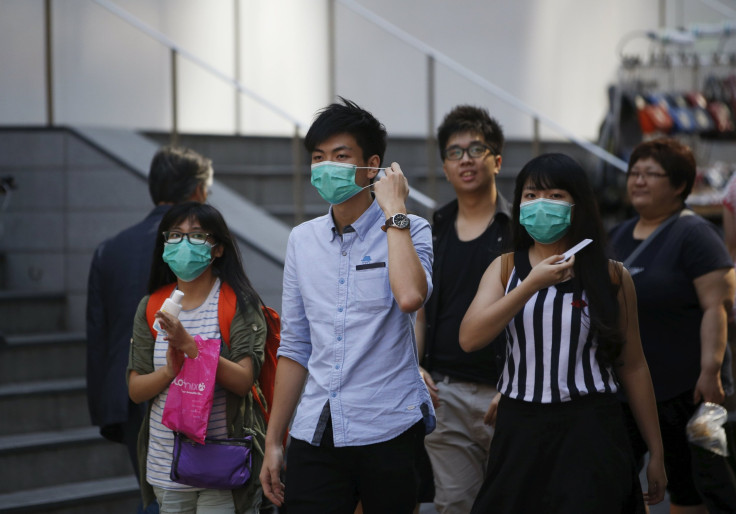MERS South Korea Outbreak: 1,500 In Seoul Exposed To Doctor With Deadly Virus Who Did Not Quarantine Himself

More than 1,500 residents in South Korea's capital city were exposed to Middle East respiratory syndrome (MERS) through direct and indirect contact with a doctor who was recently diagnosed with the deadly virus, according to the mayor of Seoul, the Korea Herald reported. The news comes as more than 1,000 schools closed across the country to contain the outbreak and Seoul city officials struggled to quarantine those who have been exposed to the disease.
The doctor, who is the country's 35th confirmed MERS patient, visited a large conference in Seoul last weekend and attended several meetings and symposiums while carrying the virus, despite instructions from city and medical authorities to quarantine himself, Seoul Mayor Park Won-soon said Thursday during a press conference. “On Saturday, the doctor attended the union meeting for the reconstruction of an apartment complex in Gaepo-dong, Seoul, which was attended by a total of 1,565 local people,” Park said.
Seoul mayor Park Won-soon is speaking. pic.twitter.com/EgLku2hGni
— M.J.L (@464646slim) June 4, 2015Three people have already died from the disease in South Korea, and many have been critical of the government's initially slow response to contain the crisis. The first case of the latest MERS outbreak was reported May 20 and came from a man who returned to South Korea after traveling through Saudi Arabia, Qatar, the United Arab Emirates and Bahrain, according to the World Health Organization (WHO). He was not ill during the period of travel.
"Concerns are growing as this means that the central control tower to combat MERS collapsed," an official from the municipal government told the Korea Herald, after recent news of large-scale exposure.
MERS was first reported in 2012, according to WHO. Related to severe acute respiratory syndrome (SARS) and the common cold, MERS causes a fever, coughing and shortness of breath, according the Center for Disease Control and Prevention. While human-to-human transmission has been limited in the past, the alarming rate of the spread of the virus in this outbreak has been attributed to the close proximity of patients within Korean hospitals.
"This is quite unusual. I think this is the only country, apart from the Middle East, that has such a number of cases." said Dr. Leo Poon, a virology expert at the School of Public Health at the University of Hong Kong, to CNN. Poon said MERS' fast spread in South Korea is "not entirely surprising," as the current spread of the virus is a "similar situation" to "hospital outbreaks" in Saudi Arabia.
Park was planning to hold an emergency press briefing at 10:30 p.m. local time Thursday to announce countermeasures to combat the MERS virus.
© Copyright IBTimes 2025. All rights reserved.






















